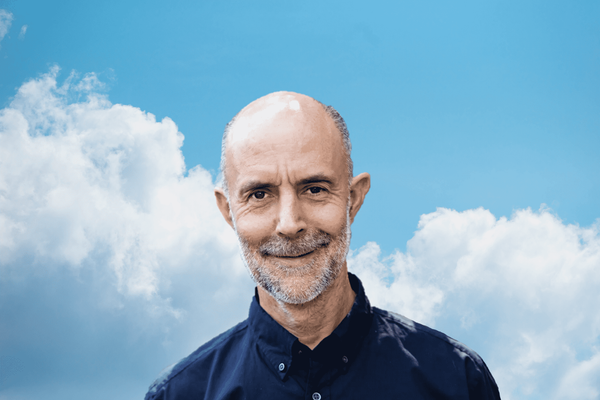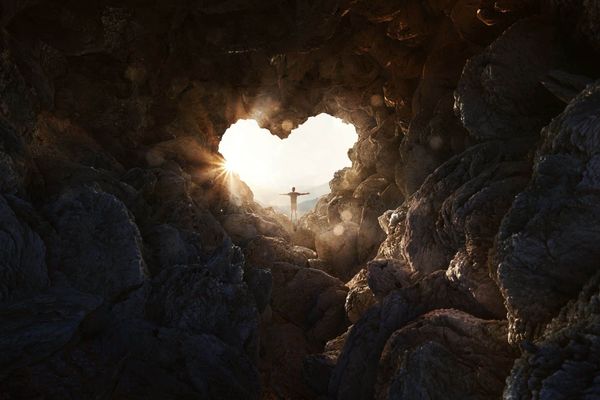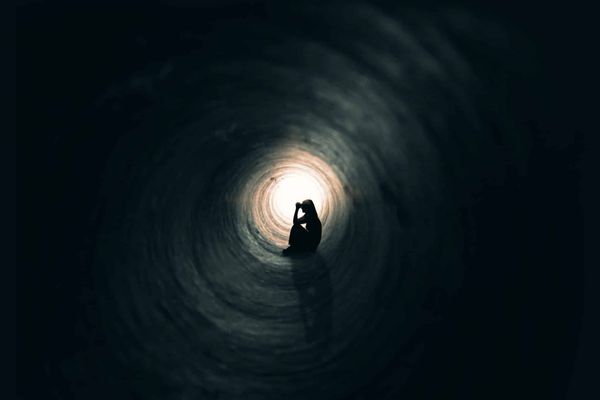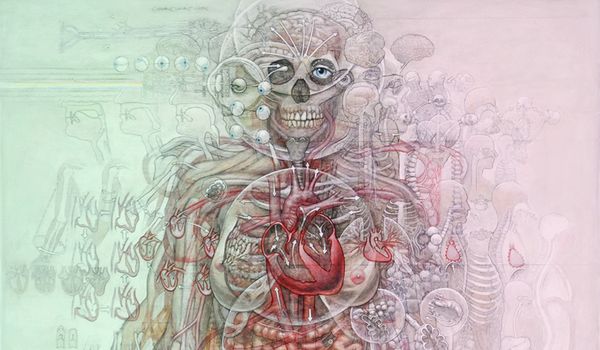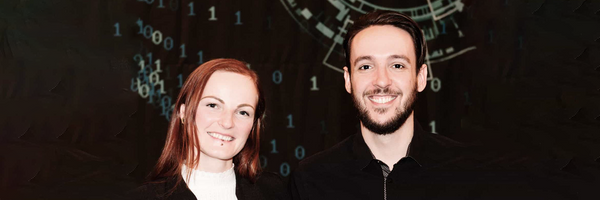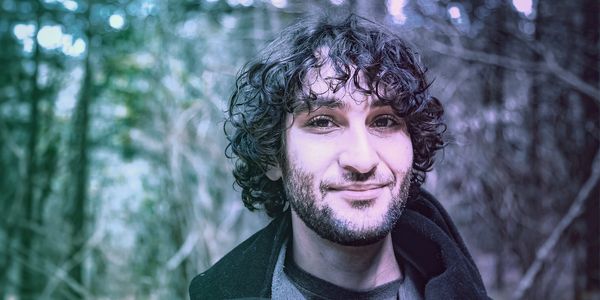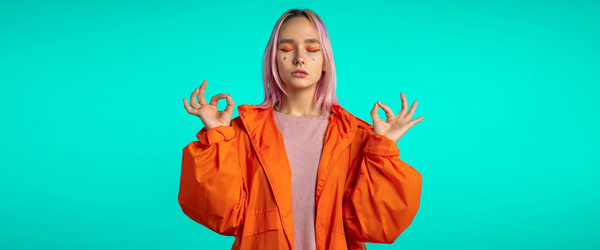Steve Taylor • • 13 min read
Beyond the Brain: How a Spiritual Perspective Can Help Us Understand Consciousness

The key to growth is the introduction of higher dimensions of consciousness into our awareness.”
— Lao Tzu
Francis Crick was one of the most eminent scientists of the twentieth century. In 1953, along with James Watson, he helped to ‘break’ the genetic code (by discovering the structure of the DNA molecule). Later in his scientific career, Crick decided to turn his attention to what seemed to him to be the biggest remaining problem in science: consciousness. He decided he was going to solve the riddle of how our brain produces our ‘inner life’ of thoughts and sensations.
Crick fully expected the riddle to be solved within a few years, with the help of the latest brain-scanning and imaging technology. The issue seemed straightforward: human beings experience consciousness, and consciousness is produced by the brain. After all, isn’t it clear that when the brain is damaged, consciousness is impaired? And isn’t it clear that when the brain stops functioning — at the point of death — consciousness stops too? As Crick put it graphically, ‘You, your joys and your sorrows, your memories and your ambitions, your sense of personal identity and free will, are in fact no more than the behavior of a vast assembly of nerve cells and their associated molecules.’ His task was therefore clear: to investigate exactly how these nerve cells and molecules gave rise to our conscious experience.
Unfortunately, consciousness proved to be much harder to ‘crack’ than the genetic code. Working together with a young researcher called Cristof Koch, Crick devoted the last two decades of his life to the riddle of consciousness but made frustratingly little progress. He made a number of suggestions — for example, that consciousness was related to the brain’s visual cortex, to short term memory or ‘some form of serial attentional mechanism’ — but none of these were confirmed by evidence.
Interestingly, although Crick never gave up his faith in a materialistic explanation of consciousness, his co-researcher did. Cristof Koch eventually came to doubt the basic assumption of their work: that consciousness can be explained in terms of brain activity. He began to investigate alternative ways of explaining consciousness, and adopted a panpsychist perspective, based on the idea that consciousness is an intrinsic property of the universe.
In this article, I will examine why Crick made – and many other scientists have made — so little progress in attempting to explain consciousness in terms of brain activity. And we will see how, from a spiritual perspective, consciousness begins to seem much less problematic.

The Brain as the Source of Consciousness
Francis Crick’s belief that consciousness is somehow the last remaining big question in science helps to explain the popularity of the study of consciousness over the last thirty years or so. According to this narrative, we have now reached the point where we largely understand problems like evolution, the nature of life and the origins of the universe, so now it is time for us to turn our attention inside and solve the problem of consciousness. Of course, this attitude was largely based on false confidence — it is very debatable that we do largely understand the above phenomena, particularly in view of more recent findings. For example, since the 1990s the discovery of dark matter and dark energy has shown that there is a great deal about the universe that we don’t understand. Likewise, the mapping of the human genome has shown that we understand much less about the genetic basis of life than we presumed.
And as Francis Crick found, the belief that we would be able to solve the mystery of consciousness was also based on false confidence. Many suggestions have been made, besides those of Crick. For example, the Scottish philosopher Donald MacKay suggested that consciousness is related to interactions between cortical layer and other deeper layers of the brain; the neuroscientist, Rodney Cotterill has suggested that the site of consciousness is the anterior cingulate, while V.S. Ramachandran — one of the most famous of all neuroscientists — suggested that the ‘circuitry’ of consciousness lies in the temporal lobes as well as a part of the frontal lobes called the cingulate gyrus.
The wildly varying nature of these suggestions tells its own story. When so little consensus exists in explanations, it suggests that the causal assumption underlying the explanations (in this case that the brain produces consciousness) is doubtful. In fact, the idea that consciousness stems from one particular area of the brain has now been largely discarded by theorists, in favour of the view that consciousness is some way generated by the brain as a whole. As the neuroscientist Giulio Tononi has put it, ‘Consciousness is associated with a distributed neural system: there is no single area where it all comes together.’ But still no one has put forward any viable theory of how the whole brain may produce consciousness.
There are other difficulties too. As Tononi has also pointed out, brain cells fire almost as much in deep sleep as they do in the wakeful state, despite the lack of (or at least lower level of) consciousness in the former. They also fire to a high degree in epileptic absence seizures (when a person blanks out) even though consciousness is lost. In certain parts of the brain – such as the thalamocortical system – you can identify some neurons that correlate with conscious experience, while other neurons do not seem to have any affect on it. Why should consciousness correlate with some neurons but not others? All of this suggests a lack of a direct and reliable relationship between brain activity and conscious experience.
However, there is an even bigger issue. Many philosophers have suggested that the very assumption that the brain produces consciousness should be abandoned. If you held a brain in your hand, you would find it to be a soggy clump of grey matter, a bit like putty, and about as heavy as a packet of flour. How is it possible that this grey soggy stuff can give rise to the richness and depth of your conscious experience? The physical matter of the brain – no matter how complicated the interactions between the cells are – belongs to one category of substance, and the non-physical qualia of conscious experience belong to another, so how can the latter be explained in terms of the former? As the philosopher Colin McGinn has put it, to say that the brain produces consciousness is like saying that water can turn into wine.
Some philosophers have suggested that consciousness is an ’emergent’ property which naturally arises once matter reaches a certain level of complexity. However, this is just a description rather than an explanation. Since no one has been able to explain how consciousness might emerge from matter, it is just a restating of the problem. And in any case, when a property emerges from the most basic components of a system, that property is normally inherent in those components, and can be deduced from them. But there is nothing about conscious experience that is relatable to the physical stuff of the brain. At the most microcosmic level, the brain consists of sub-atomic particles, which have qualities like mass, spin and charge. There is nothing about these qualities that relates to the qualities associated with consciousness, such as thought, taste, pain or anxiety. As Colin McGinn states graphically, ‘You might as well assert that that numbers emerge from biscuits or ethics from rhubarb’.
The Australian philosopher David Chalmers has referred to this as the ‘hard problem.’ As Chalmers sees it, there are some aspects of the relationship between cognitive activity and brain activity that psychologists and neuroscientists understand fairly well. For example, we have a fairly good idea of the brain functions involved in memory, attention and information processing. But these are just the ‘easy problems.’ The problem of how the brain might give rise to consciousness is on a completely different scale. The ‘hard problem’ may not be soluble at all.
This has also been described as the ‘explanatory gap.’ Even if we did somehow manage to precisely identify the neural networks associated with consciousness, what would this tell us? There would still be a gulf between the physical stuff of the brain and the richness of conscious experience. (Essentially this is same problem that was expressed by Greek philosophers as ex nihilo nihil fit — out of nothing, comes nothing.) As Francis Crick’s co-researcher, Cristof Koch, put it, explaining why he came to doubt neurological explanations of consciousness, the ’emergence of subjective feelings from physical stuff appears inconceivable…The phenomenal hails from a kingdom other than the physical and is subject to different laws. I see no way for the divide between unconscious and conscious states to be bridged by bigger brains or more complex neurons.’ Koch realised that panpsychism offered a way to transcend this problem, and now believes that, rather than being produced by the circuitry of the brain, consciousness is ‘inherent in the design of the universe.’
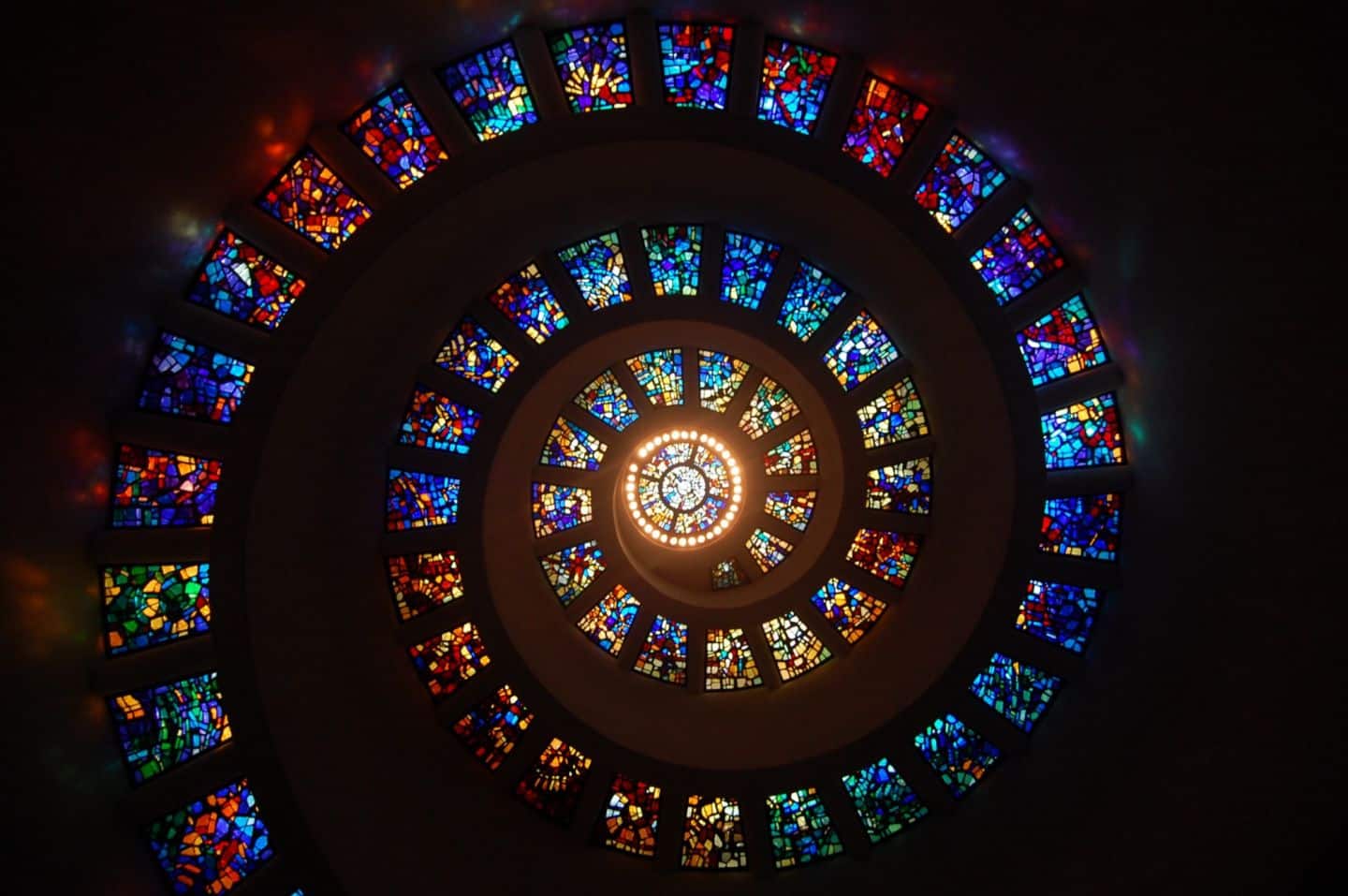
Consciousness as an Illusion
Another possible approach to consciousness is to say that it doesn’t need to be explained because it’s an illusion. The most well known advocate of this approach is the American philosopher Daniel Dennett. He believes that we don’t need to explain how the physical stuff of the brain gives rise to consciousness, because it doesn’t. In other words, there is no ‘hard problem.’ Dennett’s response to Chalmers’ concept of the zombie is to say that yes, we are zombies. None of us are really conscious, even though we convince ourselves that we are.
What Dennett tries to do is not, therefore, to explain how consciousness arises, but to try to show how the illusion of consciousness arises. He suggests that this illusion is closely related to the illusion of self. In the exercise I described earlier, the self is the aspect of consciousness that observes our own mental processes, and ‘looks out’ at the world. Dennett describes this as the illusion of the ‘Cartesian Theatre,’ based on Descartes’ famous phrase, ‘I think, therefore I am.’ It feels as if we are sitting in theatre, watching our thoughts pass by, but in reality no one is there. According to Dennett. there are just mental processes, streams of thoughts, sensations and perceptions passing through our brains, without a central place where all of these phenomena are organised. People only believe they are conscious when they look inside and take a snapshot of these processes. But until that point there was nothing in consciousness.
However, there is a basic absurdity in the argument that consciousness is an illusion. The argument can only be made via the consciousness of individual human beings, such as Daniel Dennett. And these individuals are obviously assuming that their own consciousness is authentic and reliable — otherwise they would not bother to state its observations. If they really believed that their own consciousness didn’t exist, then surely they would not trust its insights and ideas. Dennett presupposes that there is a reliable observer inside him who is able to pass judgement on consciousness — and that very presumption contradicts his own arguments. That is the very thing whose existence he is trying to disprove. Would you trust the evidence of a witness who has been shown to be unreliable – indeed, a witness who you yourself have concluded does not exist? In other words, the argument is caught in a loop. Consciousness cannot prove that it does not exist.
The issue becomes even more absurd when we consider that, in order to argue that consciousness doesn’t exist, Dennett collects many examples of experiments showing how unreliable human awareness can be, how we often misperceive situations and make assumptions that turn out to be false. All of these experiments were undertaken by human beings who believed they were conscious. But if the individual consciousnesses which conducted these tests and described these findings are actually illusory, why should we trust their findings?
Related to this, there is a problem of subject/object confusion. Dennett attempts to examine consciousness from the outside. He treats it like a botanist examining a flower, as an object to scrutinize and categorize. But of course, with consciousness, the subject is the object. You are consciousness. So it is fallacious to examine it as if it is something ‘other.’ Again, you are caught in a loop. You can’t get outside consciousness. And so any ‘objective’ pronouncements you make about it are fallacious from the start. (This is an issue with attempts to explain consciousness in neurological terms too.)
In fact, what Dennett does is to simply ignore the subjective aspect of consciousness, including his own subjectivity. Like behaviourists in psychology., he believes that subjectivity can just be disregarded. But the very idea that consciousness is an illusion presupposes that there is someone to whom it is an illusion. And that someone is the human subject itself.
All of this shows how problematic and bizarrely counterintuitive it is to argue that consciousness is an illusion.
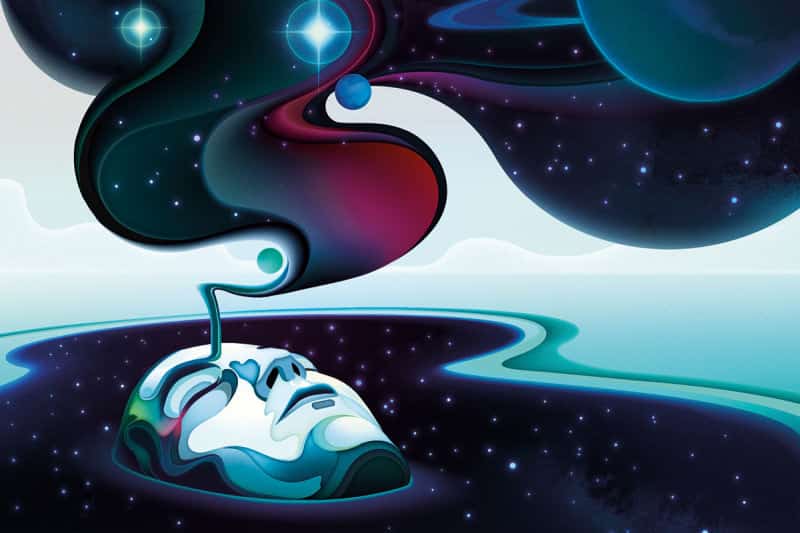
The Spiritual Alternative — “Panspiritism”
Some philosophers believe that because of the difficulties of explaining consciousness in terms of the brain – and the absurdity of pretending that it’s an illusion – we shouldn’t expect to understand it. This is what is known as the ‘mysterian’ position, and in some ways it makes sense. The human intellect is limited; there are surely some things that are beyond our understanding, some riddles that we will never be able to solve. And the riddle of consciousness is especially problematic, since – as I’ve just noted – we are consciousness, and so it’s impossible for us to investigate it with clarity or objectivity. Because of this, we may well be — as the philosopher Colin McGinn has put it — ‘cognitively closed’ to the problem of consciousness. However, I believe that we can make some sense of the riddle of consciousness, if we look at it from the perspective of what I call “panspiritism.”
As its name suggests, panspiritism is similar to panpsychism. Panpsychism suggests that the most basic particles of matter have some of form of inner being, and some form of experience, even if it is so basic and primitive that it is impossible for us to conceive of. However, panspiritism differs slightly in that it suggests that there is a fundamental quality which is inherent in all space as well as in all material things. This quality – which could be called fundamental consciousness – is all-pervading. It is everywhere and in everything. It is the most fundamental quality in the universe, from which the universe – and hence all things in it – arose. David Chalmers has suggested that consciousness is an irreducible quality with a similar status to fundamental forces like gravity and electromagnetism, which aren’t caused or produced by anything – they are simply are. But according to panspiritism, consciousness may be even more fundamental than gravity or electromagnetism, because it precedes the formation of the universe, and the universe – with all of its material particles and forces and laws – is an expression of it.
From the panspiritist perspective, the brain does not produce consciousness, but acts a kind of receiver which transmits and canalises universal consciousness (or spirit-force, which is equivalent to it) into our own being. Via the brain (not just the human brain, but that of every other animal), the raw essence of universal consciousness is canalised into our own individual consciousness. And because the human brain is so large and complex, it is able to receive and canalise consciousness in a very intense and intricate way, so that we are (probably) more intensely and expansively conscious than most other animals. As the philosopher Robert Forman has put it:
Consciousness is more like a field than a localized point, a field which transcends the body and yet somehow interacts with it…Brain cells may receive, guide, arbitrate, or canalize an awareness which is somehow transcendental to them. The brain may be more like a receiver or transformer for the field of awareness than its generator.
In contrast to panpsychism, therefore, panspiritism doesn’t hold that all material particles have their own mind, or inner being, and therefore their own experience. Panspiritism suggests that although consciousness is in all things, all things do not have their own individuated consciousness. Although fundamental consciousness pervades everything, all things are not conscious. Only structures that have the necessary complexity and organisational form to receive and canalise fundamental consciousness into themselves are individually conscious, and individually alive.
As we saw at the beginning of this article, one of the most obvious reasons for assuming that the brain produces consciousness is that, if brain is damaged, consciousness may be impaired or altered. And even if brain functioning is just altered to some degree – for example, by drugs – then consciousness is usually affected. However, this doesn’t invalidate the spiritual explanation of consciousness. Even if the brain doesn’t produce consciousness, but rather receives and transmits it, any damage or alteration will have an equally significant effect. A radio doesn’t produce the music that comes through it, it just receives and transmits it. Nevertheless, if the radio is damaged, then its ability to transmit the music will be impaired. And if someone changes the tone control of the radio (which is analogous with taking drugs) or tampers with its inner circuitry, then its output will obviously be affected.
Panspiritism also fits well with neuroscientists’ finding that consciousness is associated with the brain as a whole, rather than located in one particular part or pattern of neurological activity. If the brain’s role is not to produce consciousness but to receive and transmit it, then we would fully expect it to be widely distributed in this way. Consciousness does not depend on any particular part of the brain; the brain’s ‘receiving and transmitting’ role depends on it functioning as an integrated, interrelated whole.
It might be argued that panspiritism doesn’t really solve the riddle of consciousness, because it doesn’t explain where consciousness came from in the first place. But in a sense it doesn’t need to do this. Consciousness doesn’t come from anywhere – it just is. Physicists don’t feel it necessary to try to explain where electromagnetism, mass or gravity come from – they are just built into the universe. And the same is true of consciousness, or spirit-force.
In a similar way, you could argue that panspirtism cannot tell us how the brain receives and transmits consciousness. It cannot identify the processes involved, just as materialists cannot identify the processes by which the brain might give rise to consciousness. This is true, of course. It could be that we will never know this – perhaps this is one sense in which the ‘mysterian’ argument holds true, in that there some things that our limited intellect and awareness will never be able to understand.
Nevertheless, on a theoretical level, the panspiritist argument seems very viable as an alternative to materialist explanations of consciousness. According to panspiritism, it isn’t just a question of us having consciousness, but of us being consciousness. And it isn’t a question of us being individually conscious, because we share the same consciousness. This means that we are essentially one, part of a greater unity rather that separate individuals.
As I show in my book Spiritual Science, this perspective can help explain a number of other puzzling phenomena too, such as altruism, spiritual experiences, telepathy and even near-death experiences. As soon as we accept the premise that consciousness is fundamental to the universe, rather than produced by the brain, a whole new realm of understanding opens up.

